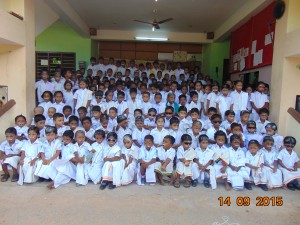The Feasibility of Maker Education in CBSE Schools - Karthi Vidhyalaya International ICSE School
The Feasibility of Maker Education in CBSE Schools - Karthi Vidhyalaya International ICSE School
Although secondary vocational students have resistance to the study of cultural classes, they have strong practical ability, flexible thinking, innovative consciousness, and like to operate courses. The essence of creator education is the process of making real objects from ideas in the minds of students through knowledge and practice . This is similar to the hobbies and interests of secondary vocational students, so from the point of view of student learning, Maker education is feasible in secondary vocational schools. Arandom sample of 100 secondary vocational students was selected to investigate their attitudes towards Marker education,
At present, the traditional teaching methods are not enough to arouse
interest of students in learning and it is difficult to achieve the
expected learning effect in secondary vocational schools. In order to
solve this problem, this paper has done some research in secondary
vocational schools. It is found that Maker education, as a new form of
secondary vocational education, has been loved by students to some
extent. This paper makes a brief analysis of traditional teaching
methods and creative education in terms of students' attitudes and
achievements. It is found that students have good learning attitudes and
high learning interest in Maker classroom, which is conducive to the
systematic mastery of scientific knowledge. Moreover, this paper also
conducts in-depth investigation and research on the feasibility and
necessity of Maker Education in secondary vocational schools, which
provides relevant theoretical basis for the full implementation of Maker
education in secondary vocational schools. Read More
Among the secondary vocational teachers, most of them have the experience of practical teaching, not just the teaching of theory. In addition, secondary vocational schools have cooperative projects with many enterprises. On the one hand, they can increase practical opportunities for secondary vocational students; on the other hand, enterprise leaders can also directly carry out skills training for students. The requirements for teachers in Maker education are people with specific skills, special love for something and good communication skills. Obviously, most of the teachers in the secondary vocational schools meet the requirements. In addition, the enterprises that cooperate with the secondary vocational schools also have managers who meet the requirements of teachers in Maker, and they can also carry out the Maker education for the secondary vocational students. Therefore, from the point of view of teachers, Maker education is feasible in secondary vocational schools.


Comments
Post a Comment